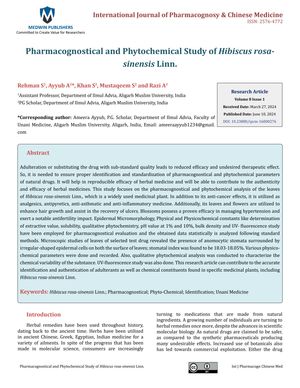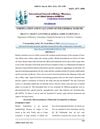Pharmacognostical and Phytochemical Study of Hibiscus Rosa-Sinensis Linn.
February 2024
in “
International Journal of Pharmacognosy & Chinese Medicine
”

TLDR Hibiscus rosa-sinensis Linn. has many medicinal benefits and needs proper identification for effective use.
This study on Hibiscus rosa-sinensis Linn. emphasizes the importance of proper identification and standardization of pharmacognostical and phytochemical parameters to ensure the efficacy of herbal medicines. The research includes detailed microscopic studies, revealing anomocytic stomata with a stomatal index of 18.03-18.05%, and various physicochemical analyses such as extractive value, solubility, pH, bulk density, and UV-fluorescence. The findings support the plant's medicinal uses, including its anti-cancer, analgesic, antipyretic, anti-asthmatic, anti-inflammatory, hair growth enhancement, ulcer recovery, hypertension management, and antifertility effects, contributing to the accurate identification and authentication of its chemical constituents.




